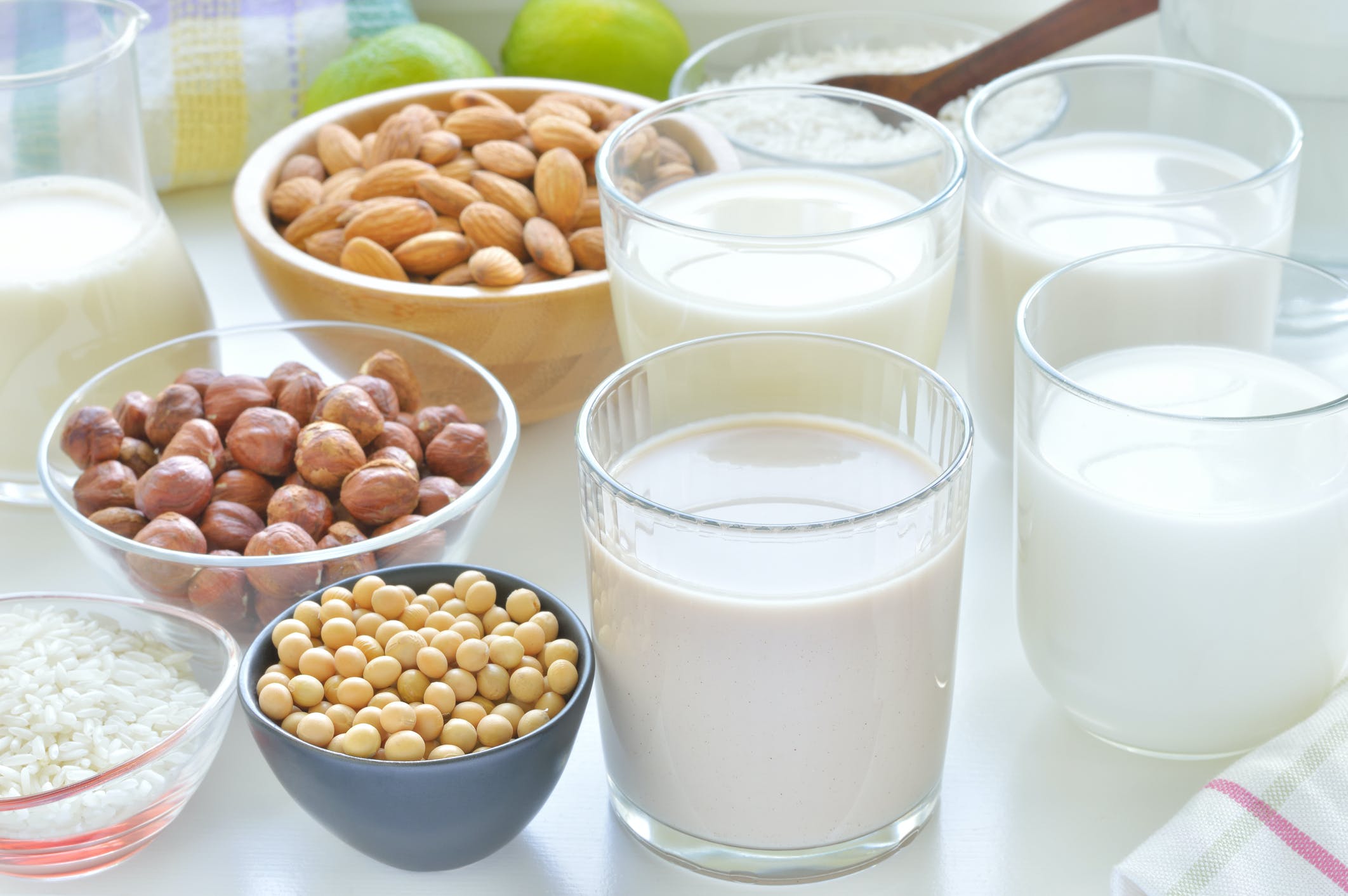Plant-based milk alternatives are amazing substitutions that anyone can enjoy, whether you’re unable to consume dairy or just like having more options! Not only are there tons of companies that make and sell milk alternatives, but they come in so many different varieties. There’s coconut milk, flax milk, oat milk – the options are endless!
Unfortunately, it’s tough to find a milk alternative that tastes good and doesn’t contain any weird additives. While it’s incredibly convenient to grab a store-bought milk alternative off the shelves in a grocery store, a lot of brands add gums and preservatives to their milk. More often than not, the ingredients list includes added gums, like guar gum and carrageenan, which act as thickeners. However, they can cause digestive issues and discomfort, especially in people with sensitive stomachs.
Only a tiny percentage of the store-bought milk alternative consists of nuts, seeds, or grains; the rest are filtered water, gums, and additives. Almond milk, for example, is low in calories and fat because it’s mainly made out of water. So, the next time you go to pick up your favorite store-bought nut milk, read the nutrition label and the ingredients. It will probably disappoint you!
There are only a handful of companies that make milk substitutes that don’t contain additives, but those tend to be super expensive and hard to find. Luckily, making a gum-free milk alternative in the comfort of your home is so easy and so worth it! You will actually taste the clean ingredients that go into a real homemade plant-based milk. It’s so delicious and creamy, and you’ll never want to buy the store-bought version again.
How to Make a Basic Milk Alternative at Home With a NutriBullet
Ingredients
- ½ to 1 cup of a nut, seed, or grain of your choice
- 2 cups of filtered water
- Optional flavoring ingredients: 1 pitted date for sweetness, 1 teaspoon of vanilla extract, ½ teaspoon of ground cinnamon, 1 pinch of sea salt for a little flavor pop, 1 teaspoon of matcha powder for matcha milk, or a few strawberries for strawberry milk
Instructions
- If using a nut or grain, soak them in water overnight or at least for 4 hours until they soften. For rice milk, use brown rice, and make sure to cook and cool it before blending. See the rice packaging for cooking instructions.
- Next, add the filtered water and the nuts, seeds, or grains to your NutriBullet Colossal or Tall Cup. If using, add any other flavorings.
- Twist the blade on and blend until smooth.
- If you like thicker milk, add less water. If you want it watery, add more water. For smoother milk, you can strain it in a nut milk bag.
- When it reaches the desired consistency, pour the milk into a glass container with a lid, store in the fridge, and use it for five to seven days.
Here are six simple recipes to help get you started!
- Coconut Milk – Calling all coconut lovers! This milk is super creamy and thick. Add a date for a bit of sweetness!
- Cashew Milk – Cashew milk will be your favorite milk for your lattes and smoothies. So velvety and delicious!
- Hemp Seed Milk – Great for smoothies and cereal! Hemp seed milk has a delicious nutty flavor and consistency.
- Rice Milk – Also great for lattes and coffee! Add some vanilla extract for vanilla-flavored milk. Yum!
- Oat Milk – A gluten-free favorite for lattes! It’s hard to find gluten-free oat milk in stores, so definitely give this recipe a try.
- Flax Milk – Super nutritious and delicious in smoothies!
With minimal ingredients and little prep work, you can make tasty plant-based milk to enjoy in your favorite smoothies, soups, sauces, and more!
Nutritional information
Recipe: Creamy Green Strawberry Dream Serving in this recipe:1
- Calories: 236.6
- Total Fat: 3.6 g 5.5%
- Saturated Fat: 0.4 g 1.9%
- Cholesterol: 0 mg 0%
- Sodium: 358.7 mg 14.9%
- Total Carbs: 45.7 g 15.2%
- Dietary Fiber: 9.9 g 39.4%
- Sugar: 22.1 g
- Protein: 8.1 g 16.2%
- Vitamin A: 481.9% Vitamin C: 244.1%
- Calcium: 68.5% Iron: 26.1%
* Percent Daily Values are based on a 2,000 calorie diet. Your daily values may be higher or lower depending on your calorie needs.




























